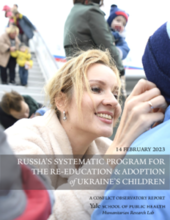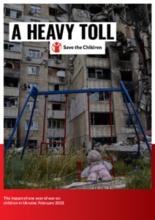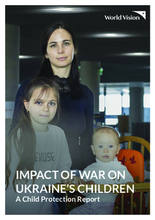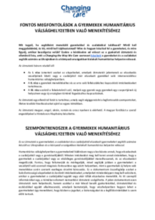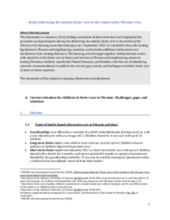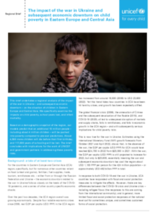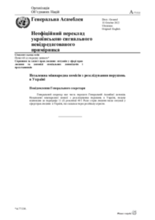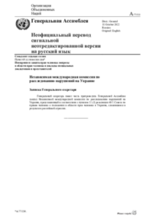This section includes resources, news and other key documents related to children's care in the context of the current humanitarian crisis affecting Ukraine and surrounding countries. This section is updated daily.
News
Featured Resources
Related Tools and Guidance
Country Care Snapshot
Events
Other Resources
Displaying 51 - 60 of 194
This report published by the Yale School of Public Health’s Humanitarian Research Lab (HRL) documents the relocation by Russia of at least 6,000 children from Ukraine to a network of re-education and adoption facilities in Russia-occupied Crimea and mainland Russia.
The dramatic escalation of war in Ukraine in February 2022 has affected every person in the country.
Brief overview of the situation regarding the rights of people with disabilities in Ukraine one year after the beginning of the invasion of Ukraine by Russia.
Since 24 February, 7.5 million children from Ukraine1 have been victims of the largest human displacement crisis in the world today, with lasting consequences for generations to come.
Ezt az útmutatót azoknak a szolgáltatóknak állítottuk össze, akik gyermekekkel, családokkal és elszakított gyermekekkel foglalkoznak, válaszul a jelenlegi ukrajnai és környező országok humanitárius helyzetére.
Olena Merzliakova, a psychologist and Ph.D. in Psychology, shared effective and simple tips for parents. She is one of the experts engaged for the EU-funded hotline established this summer by the UNDP.
This document is a summary of key findings and points of discussion that were highlighted by presenters and participants during the Addressing the need for foster care in the context of the Ukraine crisis learning event that took place on 7 September 2022.
This study sets out a framework to help reduce the number of children living in poverty and prevent more families from falling into financial distress.
У цьому звіті Незалежна міжнародна слідча комісія по Україні посилатиметься на висновки щодо подій наприкінці лютого та в березні 2022 року в чотирьох областях: Київській, Чернігівській, Харківській та Сумській, відповідно до вимог резолюції S-34/1 Ради з прав людини.
В этом отчете Независимая международная комиссия по расследованию событий в Украине будет ссылаться на выводы о событиях в конце февраля и марте 2022 года в четырех областях: Киевской, Черниговской, Харьковской и Сумской, как того требует резолюция Совета по правам человека S-34/1.

